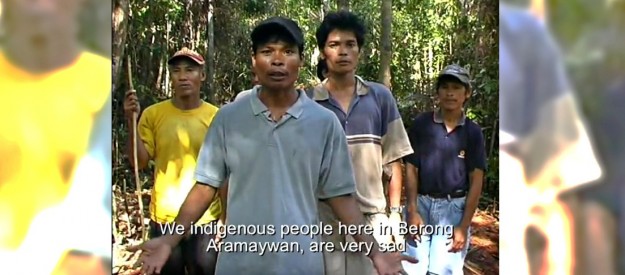"We are losing our attitude of wonder, of contemplation, of listening to creation and thus we no longer manage to interpret within it what Benedict XVI calls 'the rhythm of the love-story between God and man.'"
+ Pope Francis
“It’s not only climate change”

A recently issued report obtained by Catholic Ecology reminds us that we face more issues than climate change—and that they’re all related, as Pope Francis reminds us in Laudato Si’.
The report, “The Repression of Defenders of Commons and [Indigenous Communities] in Carada Region (Philippines),” exposes something of how agribusiness and mining operations uproot indigenous communities in places where law and order seldom win the day.
The document is graphic as it tells of the hostilities that occur on this side of Eden.
And for that reason it serves as a reminder for middle-class Westerners like me that territorial and political desire, coupled with unbridled demands for profitable natural resources, can terrorize the lives of so many innocent people, all to feed a supply chain that makes my world better off.
This is why Benedict XVI and Pope Francis have gone to great lengths to connect issues of human dignity and life with ecological issues. As Benedict XVI put it in Caritas in Veritate: “Our duties towards the environment are linked to our duties towards the human person .... It would be wrong to uphold one set of duties while trampling on the other.”
From the report:
Mindanao has long been a hotbed of the Communist insurgency, fuelled mainly by widespread poverty, military abuses, and the displacement of tribal communities by mining companies, plantations and other large business operations. Many of these businesses use the military and authorized paramilitaries to encroach upon the Lumads’ ancestral domains. The recent Lianga Massacre of 1 September, is the latest tragic event in decades of conflict in the southern tribal areas. (Pg 8)
From Laudato Si’:
It is essential to show special care for indigenous communities and their cultural traditions. They are not merely one minority among others, but should be the principal dialogue partners, especially when large projects affecting their land are proposed. For them, land is not a commodity but rather a gift from God and from their ancestors who rest there, a sacred space with which they need to interact if they are to maintain their identity and values. When they remain on their land, they themselves care for it best. Nevertheless, in various parts of the world, pressure is being put on them to abandon their homelands to make room for agricultural or mining projects which are undertaken without regard for the degradation of nature and culture. LS 146
The stories of indigenous peoples—for instance, of the Palawan region in the Philippines, told in this documentary below—are the stories of sin told and retold throughout the world. (Even here in liberal Rhode Island, environmental protection isn’t easy when profit is in play.)
In the next few weeks we’ll be hearing a lot about climate change and Laudato Si’. Perhaps we’ll be hearing too much about the former and not enough of the latter. As the person who sent me the report said, "it's not only climate change" that we are facing.
Indeed, we’d do well to take a wider view of where we’re at and where we need to go. Because focusing exclusively on climate change and COP21 won’t get us home.
We can’t ignore the details of Laudato Si' like paragraph 146 above. We can’t ignore the indigenous peoples of the Philippines—of the world—that face greater, more immediate threats than a warming climate. Nor can we turn away from the vicious grasping for natural resources that most often crushes innocent people who do not profit from the resources that strangers tear from their ancestral lands.
More than any of this, we cannot forget the root of all this grasping: the broken, unsatiable hunger for what is not ours, a devilish desire that we encounter first in Genesis Chapter 3. And we can’t forget that all that greed and destruction of human life and hope will continue as long as the human heart stays in its fallen, ungraced state.
Which is why we need Jesus Christ and His Church to sanctify the world.
This is what Catholics ought to know and live by. And rather than international treaties—which are made with much toil and broken with ease—our real focus should be the eternal promises of God, which makes saints from us sinners.
Simply put: if we don’t work to elevate humanity’s fallen human nature—through the grace of God, of course—reports like the one sent to me on the treatment of indigenous peoples will be one of a great many to be written and infrequently read from today until the end of time.
Mary, Mother of God, protector of all peoples, pray for us.
Photo: Screen shot from Palawan: "Voices from the Lost Frontier"


















